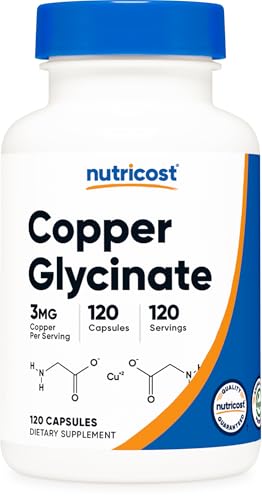Zinc: Your Body's Immune System Superhero?
Quick Summary: Zinc is a crucial mineral your body needs, like a key ingredient for a strong immune system. This research review looks at how zinc works in your body, how you get it, and what happens if you don't get enough.
Why Zinc Matters for Your Health
Zinc is essential for many body functions, but it's especially important for:
- Boosting Your Immune System: Zinc helps your body fight off infections and stay healthy.
- Wound Healing: Zinc plays a role in repairing tissues.
- Growth and Development: Zinc is vital for children and teens.
How Your Body Uses Zinc
- Getting Zinc: You get zinc from food, but your body doesn't store much of it. That's why you need to eat zinc-rich foods regularly.
- Absorption: Your body absorbs zinc in your small intestine. Certain things help (like amino acids from protein), while others can hinder absorption (like foods high in phytates, found in grains and beans).
- Where it Goes: Most zinc is found in your muscles and bones.
- Getting Rid of Zinc: Your body gets rid of zinc through waste, urine, sweat, and other fluids.
What This Means For You
- Eat a Balanced Diet: Include zinc-rich foods like meat, seafood, nuts, and seeds in your diet.
- Consider Supplementing (with caution): If you think you're not getting enough zinc, talk to your doctor about supplements.
- Be Aware of Interactions: Too much zinc can interfere with your body's ability to absorb copper and iron. Some medications can also affect zinc levels.
Study Details
- Who was studied: This was a review of existing research, so it didn't study a specific group of people. It looked at how zinc works in the body in general.
- How long: The research reviewed many studies over time.
- What they took: The research didn't involve people taking anything. It looked at how zinc works in the body and the effects of zinc deficiency.
Study Limitations
- Review, Not a New Study: This research summarized existing studies, so it didn't have its own new findings.
- No Dosage Information: The research didn't specify how much zinc you should take.
- General Information: The research didn't focus on specific groups of people.
What This Means For You
- Get Zinc from Food: Focus on eating a variety of foods to get enough zinc.
- Talk to Your Doctor: If you're concerned about your zinc levels, talk to your doctor before taking supplements. They can help you determine if you need them and how much to take.
- Be Careful with Supplements: Too much zinc can cause problems. Follow your doctor's advice.
Technical Analysis Details
Key Findings
This review highlights zinc's critical role in human physiology, emphasizing its non-storage nature necessitating regular dietary intake. Key mechanisms include ZIP4 and ZnT5B transporters mediating intestinal zinc absorption, with ZnT1 facilitating systemic circulation. Dietary promoters (amino acids, citrate) enhance bioavailability, while phytates, casein, and calcium inhibit absorption. Circulating zinc is 70% albumin-bound, with skeletal muscle and bone as primary storage sites. Excretion occurs via feces, urine, sweat, and reproductive fluids. Excessive zinc intake reduces copper and iron absorption, potentially causing deficiency and anemia. Zinc toxicity impacts lipid profiles and immunity, while inherited deficiency (acrodermatitis enteropathica) stems from SLC39A4 gene mutations. Treatment involves zinc gluconate, sulfate, or chloride, though supplementation may interfere with antibiotics (e.g., ciprofloxacin) and osteoporosis drugs (e.g., risedronate).
Study Design
The study is classified as an observational review (type specified by user), synthesizing existing literature on zinc's cellular and clinical roles. Methodology details (e.g., inclusion criteria, data analysis) are not explicitly described in the provided summary. No sample size, duration, or demographic data (age, sex, population) are mentioned in the abstract, limiting insights into population-specific conclusions.
Dosage & Administration
The summary does not specify quantitative dosages of zinc used in supplementation. Treatment recommendations include zinc gluconate, sulfate, or chloride for deficiency states, but administration routes (oral vs. intravenous) and dosing regimens are not detailed.
Results & Efficacy
As a review, the study does not report original efficacy metrics (e.g., p-values, confidence intervals). It synthesizes established knowledge:
- ZIP4/ZnT5B and ZnT1 are essential for intestinal zinc trafficking.
- Albumin binds 70% of circulating zinc, critical for systemic availability.
- Excess zinc intake correlates with copper deficiency (mechanism: competitive inhibition of absorption) and anemia.
- Acrodermatitis enteropathica is linked to SLC39A4 mutations, with supplementation as a treatment.
Limitations
- Lack of primary data: The study is a narrative review, relying on existing literature without new experimental results.
- No dosage specifics: Practical guidance on effective zinc supplementation doses or durations is missing.
- Unclear demographic scope: The absence of sample size and population details limits generalizability.
- Potential bias: The review does not address conflicts of interest or systematic quality assessments of cited studies.
- Need for mechanistic clarity: The bidirectional role of ZnT5B and interactions with drugs (e.g., angiotensin-receptor blockers) require deeper investigation.
Clinical Relevance
Supplement users should prioritize balanced zinc intake to avoid copper deficiency and anemia, particularly with high-dose regimens. Those on medications (e.g., diuretics, antibiotics) must consult healthcare providers to mitigate interactions (e.g., reduced ciprofloxacin efficacy). Inherited deficiency (acrodermatitis enteropathica) necessitates early diagnosis and lifelong supplementation. Clinicians should monitor zinc-copper ratios in patients with malabsorption syndromes or chronic supplementation needs.
Takeaway: Zinc is vital for health, but its narrow absorption window and interactions demand cautious use. Always consult a professional before long-term supplementation.
Original Study Reference
Role of zinc in health and disease.
Source: PubMed
Published: 2024
📄 Read Full Study (PMID: 38367035)




